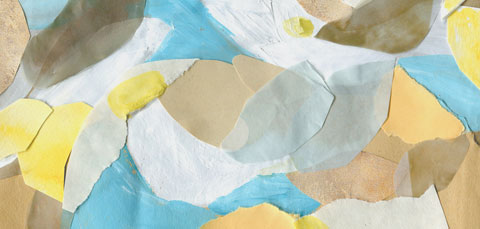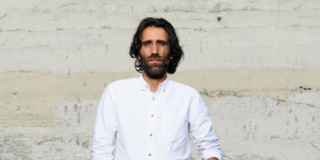
For a garment designed to conceal, the burqa has managed to attract more than its fair share of attention. In France, where the burqa is worn by roughly 1900 women, or 0.3 per cent of the population, it was nevertheless deemed worthy of a blanket ban in all public spaces. Here in Australia, calls for a ban are yet to receive any serious attention in Parliament. And yet, spurred on by the French success, the subject has become something of a media fixture, popping up repeatedly since the beginning of the year.
For those concerned with the protection of rights, the ban poses something of a conundrum. At the heart of the debate lies a conflict between women’s rights and freedom of religion. In this case, it appears the two are mutually exclusive: to protect one means to abandon the other. On the one hand, the burqa is tied to a logic whereby controlling men’s lust is the woman’s responsibility. It suggests a woman dominated by her husband, forced to conceal her body, his property. On the other, it is for many wearers a choice, an expression of religious identity.
So which is more important?
According to French President Nicolas Sarkozy, these women are “prisoners… cut off from any social life, deprived of all identity”. His immigration minister, Eric Besson, went further, describing the burqa as a “walking coffin”—the implication presumably being that the women who wear it are so repressed as to be as good as dead.
Of course, this view does not take into account the fact that some women do in fact choose to wear the burqa entirely of their own accord. In these cases, the veil no longer deprives women of identity, but affirms it. Seemingly, some are so determined to protect women’s rights that they are prepared to revoke her right to choose. By this logic, the women must be protected against themselves.
Seemingly, some are so determined to protect women’s rights that they are prepared to revoke her right to choose. By this logic, the women must be protected against themselves.
This is where the issue gets murky. Certainly, we may question the woman’s decision. But is it the role of government to forbid it?
The International Covenant on Civil and Political Rights (ICCPR), and the Victorian Charter of Human Rights and Responsibilities, set out the right to freedom of religion, including the freedom to manifest this religion through observance and practice. While most Muslims do not consider the wearing of the burqa a requirement, for those who wear it, it is quite clearly a religious manifestation. This right is limited only to the extent that is necessary to protect public safety, order, health, or morals or the fundamental rights and freedoms of others. The question, therefore, is whether the burqa impinges upon any of these considerations.
French MP Jacques Myard, one of the initial instigators of the ban, evidently believes his rights are being infringed. Interviewed for the ABC’s Foreign Correspondent, he declared that when Muslim women wear burqas, he becomes a victim: “When you hide your face… I am the victim. I am – because you refuse [to let me see] who you are and this is not acceptable”. Whether the ability to see others’ faces is a fundamental freedom is somewhat doubtful.
In France, the main objections to the burqa centre on this perceived slight and the rejection of core republican values such as freedom, equality and secularism. Ironically, of course, the ban limits freedom of religion, and necessitates a rather peculiar interpretation of secularism, whereby rather than allowing religion to exist without interference, governments must actively eliminate all signs of it. In any case, the exception in France appears to be largely based on morals.
In Australia, on the other hand, the focus of lawmakers—namely Cory Bernardi, the main proponent of a ban—has centred upon concerns of public order and security. Bernardi suggests that the burqa has become the preferred disguise of “bank bandits”—criminals who take advantage of the supposed special status given to the burqa to bypass security.
Bernardi suggests that the burqa has become the preferred disguise of “bank bandits”—criminals who take advantage of the supposed special status given to the burqa to bypass security.
According to Bernardi and his supporters, the burqa also poses a less tangible risk to society, as it “isolates some Australians from others,” rendering it “un-Australian”.
For the moment, it remains unlikely that a ban will be passed. The major parties are officially opposed, likely wary of the legal hurdles involved, given that the Australian Constitution restricts the Commonwealth from making laws which prohibit the free exercise of religion. Nevertheless, Abbott and Gillard agree that the burqa is “confronting”, the PM stating that “we want to make sure we’re teaching…in our societies generally that men and women are equal”.
Happily, Prime Minister Gillard seems aware of the impracticalities of a ban, noting that “we should be punishing the crime rather than banning an article of clothing. If someone committed a robbery wearing a ski mask, I’m not sure we’d be saying let’s ban all ski masks… I don’t think you actually make a difference trying to ban an article of clothing. I’m not sure that’s what we want to do”.
We must be careful to refrain from the unsophisticated tit-for-tat argument which is often advanced in favour of a ban. The suggestion is that when Australians go to certain Islamic countries, they are required to wear a veil; thus, when Muslims come to Australia, they should “follow our rules”. The irony, of course, is that in no other circumstances would supporters of a ban suggest that these nations are a standard to which we ought to aspire.
And nor is the French example. Without a doubt, sexism and its manifestations should be challenged and refuted. But the burqa is merely the symbol of these attitudes, the end result. Banning the burqa will not eliminate the sexism it is seen to embody.
Banning the burqa will not eliminate the sexism it is seen to embody.
Rather, a ban will only further marginalise and stigmatise the women concerned, sacrificing fundamental rights and freedoms in the process. As Australians, we should be proud of our pluralism, our freedom and equality. Let us strive to uphold them all.
As a French Honours student, Jacqui Pavey has recently completed a thesis investigating the French political discourse surrounding immigration, identity and the burqa. She is interested in the rights of Australian immigrants, working with Sudanese immigrants and with international students in Melbourne.




